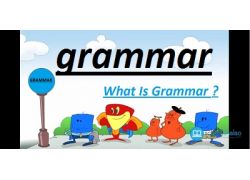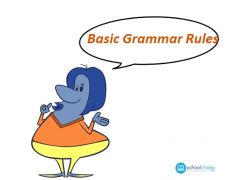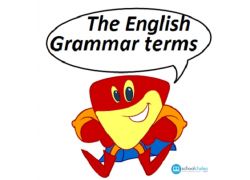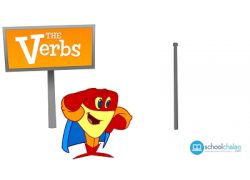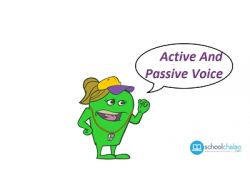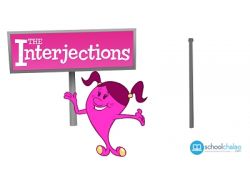Tutorial Library
Learning Point
Conjunctions
A conjunction is a word like and, but, although, because. Conjunctions have an important function because they join other words and phrases together. Without conjunctions, we could only make very, very simple sentences.
What is a Conjunction?
conjunction (noun): a part-of-speech that joins together words, phrases and clauses.
A conjunction is one of the 9 parts of speech.
A conjunction is a word that connects two parts of a sentence. The very common word and is a conjunction. Look at how it joins these words, phrases and clauses:
- bread and butter (joins two words)
- up the stairs and along the corridor (joins two phrases)
- Ram likes tea and Anthony likes coffee (joins two clauses)
Here are some other common conjunctions:
- and, but, or, nor, for, yet, so
- although, because, since, unless
And here are some more example sentences:
- Jack and Jill went up the hill.
- The water was warm, but I didn't go swimming.
- I went swimming although it was cold.
Conjunction Form
There is no special form for conjunctions. Many are short, simple words (but, for, since); and others are two or three words (so that, in order that, as long as).
Introduction to Conjunctions
We can consider conjunctions from three aspects.
1. What do Conjunctions Do?
Conjunctions have two basic functions or "jobs":
- Coordinating conjunctions are used to join two parts of a sentence that are grammatically equal. The two parts may be single words or clauses, for example:
- Jack and Jill went up the hill.
- The water was warm, but I didn't go swimming.
- Subordinating conjunctions are used to join a subordinate dependent clause to a main clause, for example:
- I went swimming although it was cold.
Here are some example conjunctions:
|
Coordinating conjunctions |
Subordinating conjunctions |
|
and, but, or, nor, for, yet, so |
although, because, since, unless |
2. What do Conjunctions Look Like?
Conjunctions have three basic formats:
- single word
for example: and, but, because, although - compound (often ending with as or that)
for example: provided that, as long as, in order that - correlative (surrounding an adverb or adjective)
for example: so...that
3. Where do Conjunctions Go?
- Coordinating conjunctions always come between the words or clauses that they join.
- Subordinating conjunctions usually come at the beginning of the subordinate clause.
Coordinating Conjunctions
A coordinating conjunction joins parts of a sentence (for example words or independent clauses) that are grammatically equal or similar. A coordinating conjunction shows that the elements it joins are similar in importance and structure:
 +
+ 
There are seven coordinating conjunctions, and they are all short words of only two or three letters:
- and, but, or, nor, for, yet, so
Look at these examples - the two elements that the coordinating conjunction joins are shown in square brackets [ ]:
- I like [tea] and [coffee].
- [Ram likes tea], but [Anthony likes coffee].
Coordinating conjunctions always come between the words or clauses that they join.
When a coordinating conjunction joins independent clauses, it is always correct to place a comma before the conjunction:
- I want to work as an interpreter in the future, so I am studying Russian at university.
However, if the independent clauses are short and well-balanced, a comma is not really essential:
- She is kind so she helps people.
When "and" is used with the last word of a list, a comma is optional:
- He drinks beer, whisky, wine, and rum.
- He drinks beer, whisky, wine and rum.
Subordinating Conjunctions
A subordinating conjunction joins a subordinate (dependent) clause to a main (independent) clause:
 +
+ 
Here are some common subordinating conjunctions:
- after, although, as, because, before, how, if, once, since, than, that, though, till, until, when, where, whether, while
Look at this example:
|
Main or |
Subordinate or |
|
|
Ram went swimming |
although |
it was raining. |
|
|
Subordinating |
|
A subordinating conjunction always comes at the beginning of a subordinate clause. It "introduces" a subordinate clause. However, a subordinate clause can come after or before a main clause. Thus, two structures are possible:
 +
+ 
Ram went swimming although it was raining.
+ 

Although it was raining, Ram went swimming.
Very Useful (0)
Useful (0)
Not Useful (0)
Please login to your account by completing this form
Reset Your password
Please enter the email address you signed up with and we'll send you a password reset link.
A reset password link has been generated and will be sent to you via email.
You can then follow that link and select a new password.
Completing that action will allow you to reset your password and then you can insert a new one.
Please enter the email address you signed up with and we'll send you a password reset link.
A reset password link has been generated and will be sent to you via email.
You can then follow that link and select a new password.
Completing that action will allow you to reset your password and then you can insert a new one.
